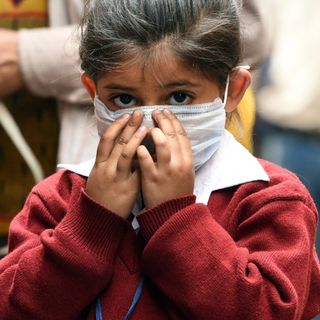The UN has called upon governments across the world to introduce measures committed to tackling the mental health crisis amid the Covid19-lockdown at the World Health Assembly, which is being held virtually this year.
Launching the policy brief, Covid19 and the Need for Action on Mental Health, the UN identified groups that are most most vulnerable to the looming mental health crisis: frontline healthcare workers, older people, adolescents and young people, those with pre-existing mental health conditions, and those caught up in conflict and crisis. “Even when the pandemic is brought under control, grief, anxiety and depression will continue to affect people and communities,” António Guterres, UN Secretary General, said in a video briefing, urging countries to include mental health in universal health coverage.
The UN’s policy focuses on the wide array of psychological distress across populations. A complete lack of human interaction, as well physical separation from loved ones was recognized as one of the leading contributors to the mental crisis, in addition to the fear of dying and losing family members. The UN also noted that the impending fear of losing livelihoods and incomes is also prompting suicides and drug abuse. Reiterating its stand against misinformation, the UN also attributed some of the stress to the infodemic around the coronavirus.
Related on The Swaddle:
Why is Lockdown Boredom Pushing People to Smoke, Drink and Snack More?
Under lockdown, Indians are already struggling to access healthcare services for non-Covid19 physical illnesses. Mental health carries stigma in India, and mental healthcare isn’t easily accessible due to factors such as lack of awareness, limited practitioners, and unaffordability. According to a study by NIMHANS, while 150 million Indians need mental healthcare, only 30 million have access to it.
Moreover, with the economic crisis unraveling rapidly, and therapy being prohibitively expensive in India, the future of mental health is bleak unless the government finds ways to subsidize this care, or at the very least, spread awareness about mental health. “Decades of neglect and under-investment in mental health services, the Covid19 pandemic is now hitting families and communities with additional mental stress,” Guterres added.
In light of these hurdles, and the absence of a sound mental health infrastructure, India may not be equipped to deal with the avalanche of mental health emergencies unleashed by the pandemic. “Good mental health is critical to the functioning of society at the best of times. It must be front and centre of every country’s response to and recovery from the Covid19 pandemic. The mental health and well-being of whole societies have been severely impacted by this crisis and are a priority to be addressed urgently,” UN’s policy brief on the subject emphasized.




